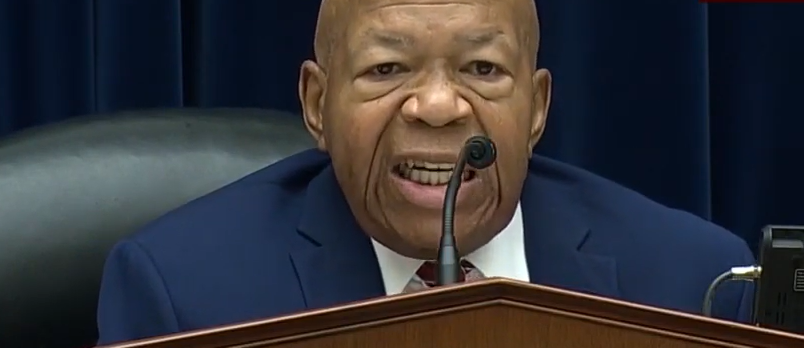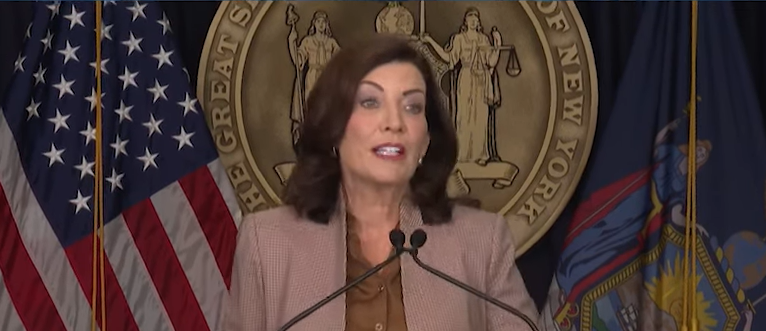Photos: Beck and Lee\YouTube
Beck and Lee Trial Lawyers of Miami announced Tuesday that it is representing Black real estate developer Ernst Valery of Baltimore in a class action against Wells Fargo after the bank refused to deposit his $3 million check.
Attorneys said the complaint and demand for jury trial has been filed in the United States District Court of Northern California, and they seek to represent all others with similar claims against the national bank (case number 3:20-cv-08874, Valery v. Wells Fargo & Company et al.).
A virtual press conference is scheduled for Wednesday, December 16, 2020 at 1 p.m. EST.
“Mr. Valery’s experience is just one more in a striking series of shameful “banking while black” incidents that have occurred at Wells Fargo branches in recent years, which constitute overwhelming evidence of systematic racism emanating from this banking institution,” Beck said. “A June 2020 New York Times article describes four recent examples of “banking while black,” three of which occurred at Wells Fargo bank branches: (1) in December 2018, Claire Middleton tried to cash a $200 check at a Wells Fargo branch in Atlanta, where bank employees promptly accused her of fraud and summoned police; (2) in March 2019, Jabari Bennett attempted to withdraw $6400 from his Wells Fargo account containing approximately $70,000 so he could buy a used car, but the Wilmington, Delaware branch refused to accept he was the account holder and threatened to call the police when he persisted in trying to complete the transaction; and (3) in April 2019, the manager of a Tampa, Florida-area Wells Fargo branch uttered the “N-word” to attorney Benndrick Watson while he was trying to open a business account for his law firm.”
The full article written by NY Times reporter Emily Flitter can be found here.
In the latest case, Valery, who immigrated to the United States from Haiti at the age of eight, is a prominent real estate developer, with a focus on low-income and underserved minority communities, who has built residential and commercial real estate projects across the country including in Maryland, Washington, D.C., Pennsylvania, Virginia, California, and New York.
The Baltimore Business Journal profiled Valery’s impressive career in a May 2019 story.
On October 9, 2020, according to the lawsuit, Valery and his wife visited the Wells Fargo branch at 5701 Reisterstown Road in Baltimore, which is the branch closest to their home. Valery had a check from the State of Maryland made out to Mr. and Mrs. Valery in the amount of three million dollars, which they wished to deposit in their joint account. It was a payment in connection with a historic tax credit that had been awarded by the State of Maryland for a development project Valery recently spearheaded to transform an abandoned Baltimore church into a brewery and affordable housing, which was featured in a Baltimore Sun column.
The complaint stated when Valery presented the check for deposit, he was a customer of over 20 years standing with Wells Fargo, with multiple accounts under his name.
“Yet, instead of simply depositing the check and thanking Mr. Valery for his continued patronage of Wells Fargo, the bank manager emerged and proceeded to barrage him, in front of his wife, with a battery of interrogatives questioning his entitlement to the funds and his knowledge of what the funds were for, and then the manager affirmatively suggested he was not the type of person who should be allowed to possess proceeds in such an amount,” Beck said. “Even after Mr. Valery calmly and professionally attempted to explain the source of the check and the nature of the tax credit involved (none of which he was required to divulge to the banker but which he did in order to placate the situation and facilitate the transaction), the Wells Fargo manager continued to refuse Mr. Valery’s request to deposit the funds in the joint account.”
Beck said the suit seeks to certify an Injunctive Relief and a Damages Class of all Black individual bank customers of Wells Fargo. Attorneys are also asking the court to order Wells Fargo to implement whatever measures are necessary to remedy the violation of law described in the complaint; to notify each and every black banking customer of Wells Fargo an opportunity to obtain damages or restitution; and to order Wells Fargo to pay damages, including compensatory damages and punitive damages.
“It is a shameful remnant of an era in American history when Black people were considered property rather than individuals with the right to own property,” Beck added. “The time has long since come to put an end to this, once and for all.”







